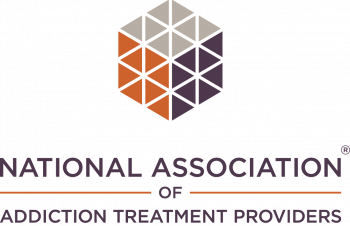In this past year, there have been nearly 100,000 drug overdoses. Opioids account for some of these overdoses, and this is largely due to the introduction of fentanyl and other potent synthetic drugs into the drug marketplace. Modern synthetic opiates like fentanyl are fifty to one-hundred times more powerful than heroin. A small amount of fentanyl can be enough to overdose. But what is fentanyl?
If you or a loved one is struggling with opioid abuse, reach out to our experts at TruHealing Gaithersburg today for more information about opioid addiction treatment. We offer a wide range of programs and services tailored to fit the individual needs of our clients. Reach out today online or at (833) 625-0398 to speak with a trained representative who can tell you more about personalized treatment options.
What Is Fentanyl?
So, what is fentanyl? Fentanyl and related synthetic opiates are widely available in many forms. They are easily mixed or “cut” into other drugs. They are even showing up in pills that are pressed in machines and made to look like common pharmaceuticals. The potency and low price of fentanyl have resulted in this becoming more and more common.
Fentanyl is also versatile and can be produced in many forms, including:
- Powder
- Pills
- Liquid drops on blotter paper
- Patch
- Lozenges
- Nasal spray
The fact that fentanyl may be added to a particular batch of drugs or mixed into other street drugs is making the illegal drug market even more dangerous than it was in the past. The result is an increased number of overdoses and overdose fatalities.
The Effects of Fentanyl
Fentanyl has a number of common effects on the body and the mind. These effects are similar to other opioids and opiates but more intense, powerful, and have increased risks.
The effects of fentanyl can include:
- Heavy sedation
- Very slow breathing
- Slow heart rate
- Tight muscles
- Physical weakness
- Constipation
- Sweating
- Itching
- Flushing
- Nausea
Naloxone Saves Lives
Naloxone, which is sold under the brand name Narcan, can reverse the effects of an opioid or opiate overdose. If you or someone you know is abusing opioids or has an opioid addiction, it’s a good idea to obtain naloxone to have on hand in case of an overdose emergency.
Common signs of overdose include:
- Blue or pale skin
- Small pupils
- Slow or shallow breathing
- Weak pulse
- Slow heartbeat
- Snoring or gurgling sounds
- Suppressed respiration
Naloxone is typically available in the form of a nasal spray. To use naloxone, spray once in each nostril of an overdosed person. Rub their chest to help spread the medication spread throughout their bloodstream and to promote breathing. If an overdosed person is unresponsive, attempt to perform CPR. To do so, press firmly on their chest to the rhythm of the song “Staying Alive,” which is the correct beat for resuscitation. Once emergency services arrive, let the professionals take over the situation.
How to Test for Fentanyl
Fentanyl test strips (FTS) allow individuals who are actively using drugs to determine if a specific drug may contain fentanyl. Further, test strips can help determine the amount of fentanyl in a dose.
Test strips are an essential tool for harm reduction. No one wants a person to overdose because they accidentally took a drug that was stronger than expected or cut with unexpected substances like fentanyl.
Avoid the Dangers of Fentanyl with Support from TruHealing Gaithersburg
It’s important not to blame someone for developing an addiction. Especially since drugs like fentanyl have come onto the scene, it’s much easier for those who abuse substances to quickly develop a dependence or a full-blown addiction.
At TruHealing Gaithersburg, our professional medical doctors and mental health practitioners do not judge people for their choices. We are here to help. Our opioid addiction treatment program is designed to help you get your life back on track. We integrate mental health services and relapse prevention techniques to help clients and their families find the path toward a better future. Contact us today online or at (833) 625-0398 to speak with a trained representative about treatment options that make the most sense based on your particular life circumstances.









